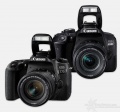Grande idea quella del giornalista in forza a C|NET, Stephen Shankland, di andarsi a vedere e studiare la metodologia di testing dei Laboratori DxO.
E che tempismo, anche! Proprio in un periodo come questo, nel quale accesissime sono le discussioni sulla qualità espressa dalla nuova generazione di reflex digitali full-frame e mirrorless m4/3 ed APS-C; senza dire dei risultati, andati oltre ogni più rosea aspettativa ed ottenuti dalla Nikon D800 oppure di quelli, un po' sotto-tono, della rinnovata generazione, la MarkIII, della Canon EOS 5D.
Insomma, per vederci chiaro (no pun intended), Stephen è andato a trovare, a Boulogne Billancourt vicino Parigi, Frederic Guichard e Nicolas Touchard, rispettivamente CEO e Vice Presidente del marketing DxO per capire più a fondo il modo e la logica con i quali vengono determinati i risultati dei vari test.
Ebbene, i punti più interessanti dell'articolo di Shankland li abbiamo riportati più sotto ma il consiglio è quello di dedicare qualche minuto alla lettura dell'intero pezzo, reperibile al link in calce, perché é davvero molto interessante.
Breve estratto dell'articolo completo che raccomandiamo di leggere per l'approfondimento.
Attenzione a dire che i MPixel non contano...
"Everybody says there is no need for more pixels, and we should reduce the number to a reasonable number so the quality will improve," Guichard said. However, DxO's aggregate measurements tell a different story: "If we look at the cameras, there are more and more pixels, and the quality is increasing in the meantime."
Dichiarare valori High-ISO elevati non equivale a direche anche la qualità è aumentata proporzionalmente
"Camera makers also have shifted their standards for acceptable noise, so just because this year's camera goes to a higher ISO than an earlier model, don't assume that the image quality at the highest ISO setting is on par. Cameras can clean up photos as they're converted into JPEGs, but DxO's measurements of the raw image data shows how newer cameras produce more noise at the highest ISO before that processing."
Ah, questi telefoni cellulari!
"Phone cameras necessarily have tiny image sensors that can't capture as much light as the bigger sensors on compact cameras or the even bigger sensors of full-frame SLR cameras. But for a given surface area of image sensor, mobile phone cameras actually do better."






